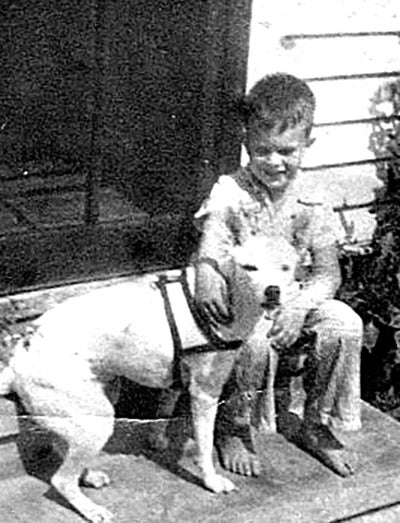And Now You Know: War of the Worlds; when America was invaded by Martians
Published 12:50 am Saturday, October 30, 2021

- And Now You Know
|
Getting your Trinity Audio player ready...
|
On Sunday night October 30, 1938, regular radio programming was suddenly interrupted by a frantic announcement that the country had been invaded by “Men from Mars.”
The broadcast came on in the double-quick, staccato tempo that is used in the tensest of times. It made the fiction of a Martian invasion seem to be a reality. The broadcast caused mass hysteria among those listening throughout the United States and Canada.
The day after the broadcast there were demands for investigation and correction for the cause of the panic.
Senator Claude L. Herring of Indiana said he planned to introduce a bill in congress “controlling just such abuses as were heard over the radio last night. Radio has no more right to present programs like that than someone has to knock on your door screaming.”
City Manager Paul Morton of Trenton, New Jersey, near the location of the fictional invasion said he would demand an investigation by the Federal Communication Commission “with the view of preventing a recurrence of what happened.”
Some apartment houses in New York were emptied by frantic listeners of the program and by second and third hand accounts that increased panic brought on by the fictional account of the invasion.
A woman in Pittsburg attempted suicide saying, “I’d rather die this way than like that.”
At a high point in the program power went out in Concrete, Washington, a town of 1,000 people and lights went out in most of the homes. Many thought the invasion had reached the West Coast. Women fainted, and men prepared to take their families to the mountains.
Switchboards in newspaper offices and police stations were swamped with calls from panicky, frantic people, many weeping, wanting to know if a Martian invasion had happened.
Some people reported they could small gas and see flames from fires started by the invading Martians.
In some places, people gathered in groups and prayed for salvation.
All over the country people in metropolitan areas people panicked and jumped in their cars and headed toward open spaces to escape from the bombing of such places as New York City. Church services were broken up by intruders who ran in screaming that the world was coming to an end.
There were questions; “It is true? Were 40 people killed in New Jersey? Or 700 in New York? Are men from Mars attacking New York with deadly weapons from another world and using gas? Was the world coming to an end?”
When it finally became apparent that there were really no Martians in sight, the hysteria died down almost as quickly as it had started.
The broadcast was an adaption of H.G. Wells “War of the Worlds”, an imaginative account of an invasion by men from Mars. It was dramatized and enhanced by Orson Welles, at that time a 23-year-old theatrical prodigy.
Four times during the broadcast the announcer had pointed out that the story was “nothing but fiction.”
“Mercury Theater of the Air” on CBS radio was not competing well with other Sunday night programming and needed something spectacular to draw listeners. Welles had the idea of using “War of the Worlds”, so he and his colleagues adapted the script from Wells’ story.
Welles was motivated to play with his audience and make them wonder if what they were hearing was real. Instead, he incited a panic.
There were lawsuits filed, but Welles was unaffected, except for criticism from the press. He actually became much more famous.
Welles broadcast of “War of the Worlds” stands as a reminder of the power of the media and the vulnerability of the public when gripped in fear.
“And now you know.”






